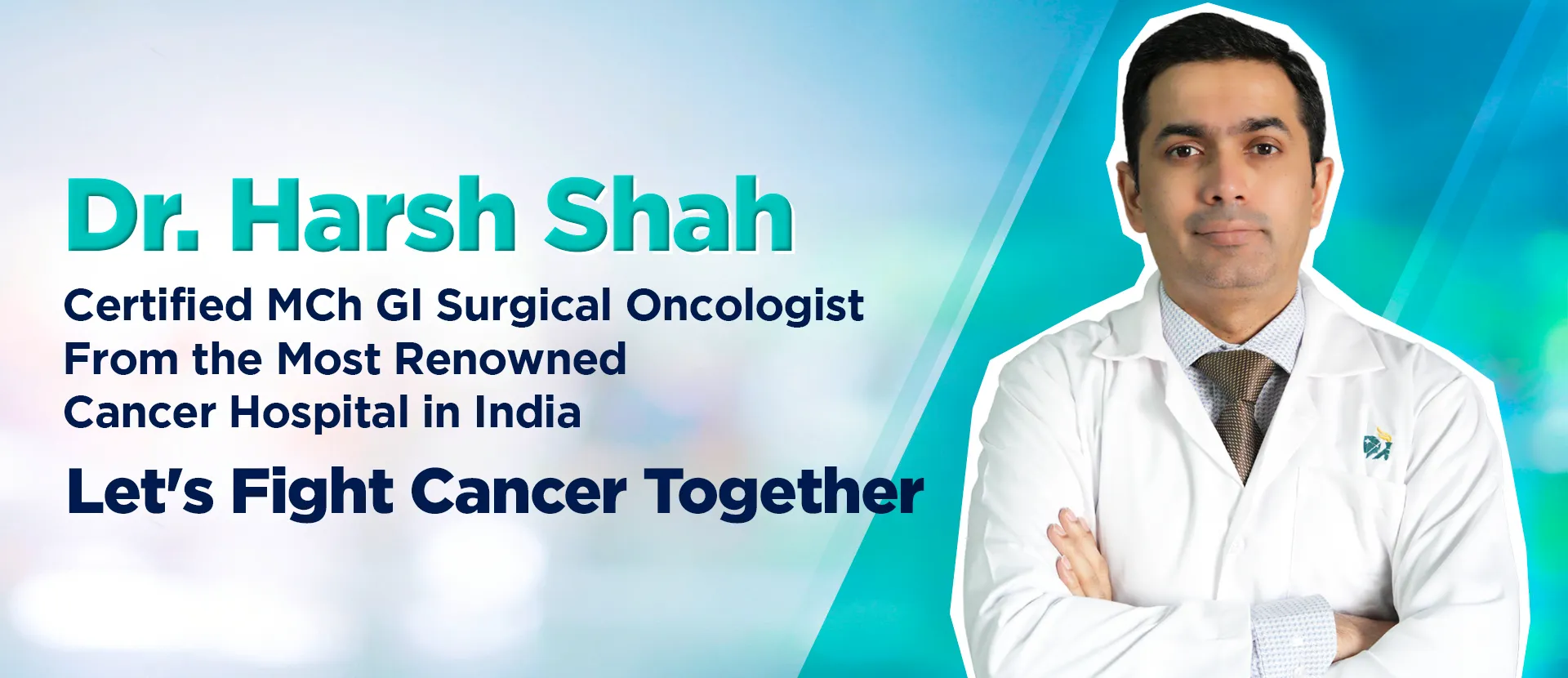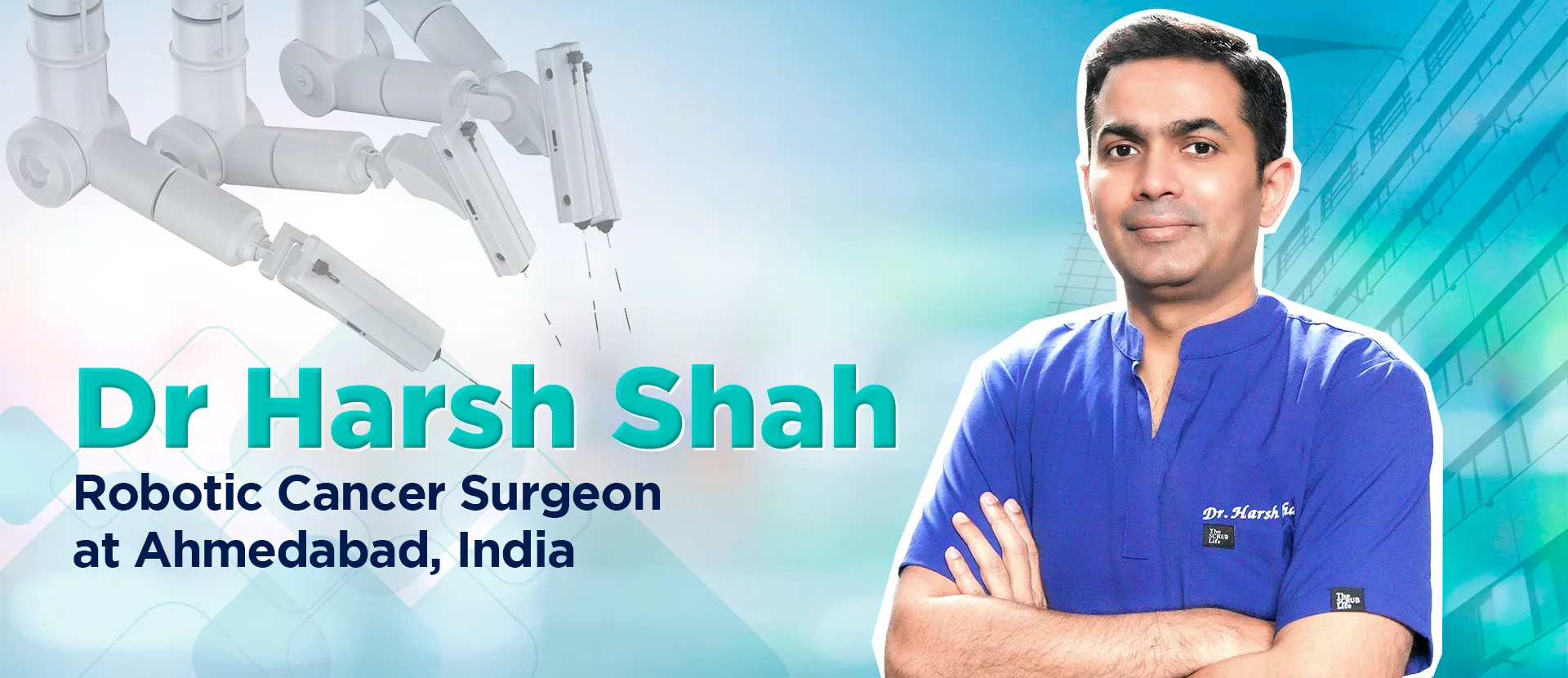
A Simple Mesh During Stoma Reversal Can Lower Hernia Risk
A Simple Mesh During Stoma Reversal Can Lower Hernia Risk You are here >> Home > Latest Updates > Hernias > A Simple… After having





Cancer specialist doctor as best oncologist in India. 15+ years of experience in treating various types of Gastrointestinal cancers.
His majority of work involves the treatment of food-pipe cancer, stomach cancer, liver cancer, pancreas cancer, gall bladder cancer, intestinal cancer & colon cancer.

Maulana Azad Medical College, Delhi, GB Pant Hospital, Delhi

Holds the highest degrees in Oncology – DrNB, MCh
11500+ satisfied patients
Having 15+ years of experience
1000+ successful operations performed
Robotic surgery minimizes damage to surrounding tissues and speeds up patient recovery by offering enhanced visualization and dexterity.
Effectively removes complex tumors and directly delivers chemotherapy, destroying residual cancer cells and improving patient survival chances.
Liver cancer involves the growth of malignant cells in the liver, often linked to chronic liver diseases or hepatitis.
Pancreatic cancer is the growth of harmful cells in the pancreas, often found late and linked to smoking and chronic pancreatitis.
Esophageal cancer is the formation of malignant cells in the esophagus, often related to acid reflux and smoking.
Gallbladder cancer involves the growth of malignant cells in the gallbladder, often linked to gallstones and chronic inflammation.
Stomach cancer is the development of malignant cells in the stomach lining, often associated with chronic infection and dietary factors.
Colon cancer is the growth of malignant cells in the colon, often linked to factors like diet, age, and genetics.
Rectal cancer involves the formation of malignant cells in the rectum, commonly associated with lifestyle factors and genetic predispositions.
Robotic surgery minimizes damage to surrounding tissues and speeds up patient recovery by offering enhanced visualization and dexterity.
Effectively removes complex tumors and directly delivers chemotherapy, destroying residual cancer cells and improving patient survival chances.
Liver cancer involves the growth of malignant cells in the liver, often linked to chronic liver diseases or hepatitis.
Pancreatic cancer is the growth of harmful cells in the pancreas, often found late and linked to smoking and chronic pancreatitis.
Esophageal cancer is the formation of malignant cells in the esophagus, often related to acid reflux and smoking.
Gallbladder cancer involves the growth of malignant cells in the gallbladder, often linked to gallstones and chronic inflammation.
Stomach cancer is the development of malignant cells in the stomach lining, often associated with chronic infection and dietary factors.
Colon cancer is the growth of malignant cells in the colon, often linked to factors like diet, age, and genetics.
Rectal cancer involves the formation of malignant cells in the rectum, commonly associated with lifestyle factors and genetic predispositions.





Tap Below to Listen

Tap Below to Listen

Dr. Shah is especially proficient in minimally invasive surgeries, which are crucial for reducing recovery times and improving the quality of life for patients undergoing cancer treatment in Ahmedabad, thanks to his expertise as a cancer specialist.
Dr. Shah leads cancer surgery at a top cancer hospital in Ahmedabad, utilizing advanced methods. As a skilled cancer doctor, she performs precise surgeries, offering cutting-edge cancer treatment. Patients trust her at the best cancer hospital in Gujarat for complex cases.
Known for innovative cancer treatment, Dr. Shah is a top cancer specialist in India. She delivers personalized care at the leading cancer hospitals in Ahmedabad, ensuring the best cancer treatment in Gujarat.
Dr. Shah’s expert team at a leading cancer hospital in Ahmedabad collaborates to provide exceptional care. This team of top cancer doctors ensures the best treatment for cancer, making the hospital the best in Gujarat.
As the best GI cancer specialist in India, his commitment to educating both his patients and their families about the best cost of cancer treatment in India ensures that they are well-informed about their options. Under his guidance, the best hospital for cancer treatment in Ahmedabad maintains a standard of excellence and integrity, making it a beacon of knowledge and trust in the community, upheld by a dedicated cancer treatment specialist.
Dr. Shah is a trusted cancer doctor, leading the best cancer hospital in Gujarat. Her hospital in Ahmedabad is known for its integrity, offering the best cancer treatment and earning patients’ trust as a top cancer specialist.
⦿ Change in bowel or bladder habits.
⦿ A sore that does not heal.
⦿ Unusual bleeding or discharge.
⦿ Thickening or lump in the breast, testicles, or elsewhere.
⦿ Indigestion or difficulty swallowing.
⦿ Obvious change in the size, color, shape, or thickness of a wart, mole, or mouth sore.
⦿ Nagging cough or hoarseness.
Early detection of cancer can significantly improve the outcomes of cancer treatments. The primary methods of cancer detection include:
⦿ Screening tests: Such as mammography for breast cancer, Pap tests for cervical cancer, and colonoscopy for colon cancer.
⦿ Imaging techniques: Including MRI, CT scans, and PET scans to visualize the internal parts of the body.
⦿ Biopsy: A procedure where a small sample of tissue is removed for examination under a microscope.
⦿ Blood tests: Some of which can detect specific markers that indicate the presence of cancer.
If you have any kind of gastro related medial emergency, visit Apollo Hospital. An expert doctor is always available & treatment will be provided at once.

A Simple Mesh During Stoma Reversal Can Lower Hernia Risk You are here >> Home > Latest Updates > Hernias > A Simple… After having

A New Way to Detect Acid Reflux Damage More Accurately You are here >> Home > Latest Updates > GERD > A New Way…. Acid

Robotic vs. Traditional Keyhole Surgery for Esophageal Cancer: What Works Best? You are here >> Home > Latest Updates > Robotic Surgery Updates > Robotic vs…